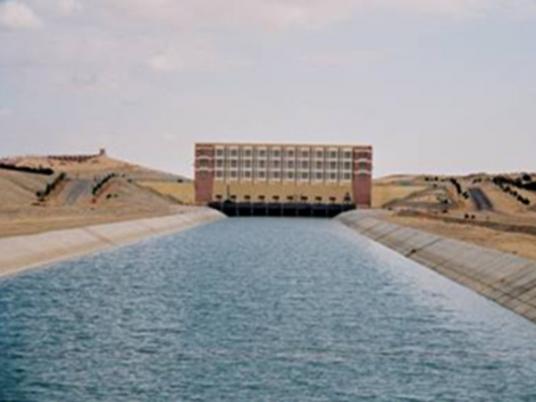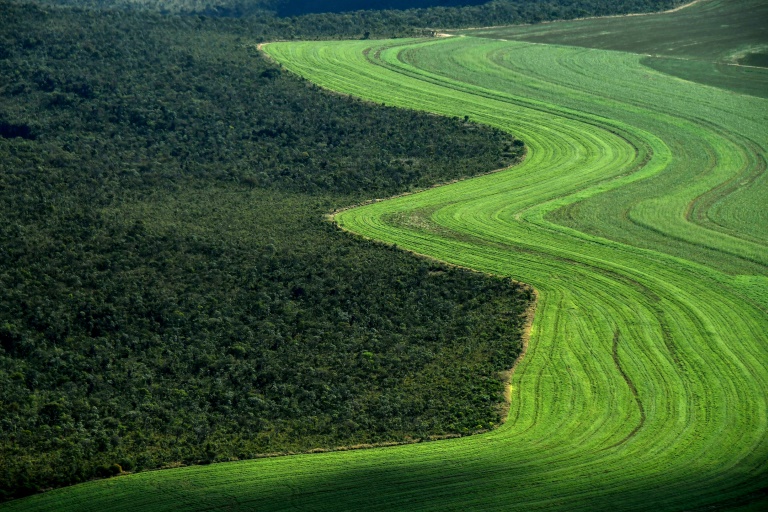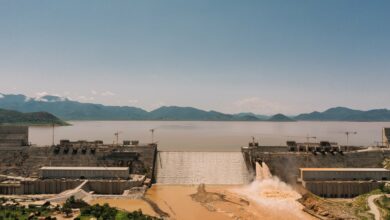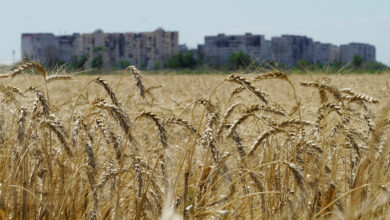
Al Salam Canal project was planned to be the main artery for development in the Sinai Peninsula, representing Egypt's strategic extension and historical link to its Arab neighbors. Met with obstacles, the project was halted, but steps are currently being taken toward its revival.
The project, first launched in 1997 under Prime Minister Kamal al-Ganzouri, was meant to irrigate and cultivate the marginalized regions of North and South Sinai and bring much needed development to the area. West of the Suez Canal, 200,000 feddans were cultivated and 100,000 feddans were distributed to farmers in the late 1970s.
Work slowed down when Ahmed Nazif took office as the new prime minister in 2004, and it reached a complete standstill in 2006. Al Salam Canal project's 30 years of existence has had costly and disappointing results, putting it in a lineage of failed mega-projects such as Toshka.
Shedding light on the project, the governor of North Sinai, Major General Abdel Wahab Mabruk, explains that the project was initially meant to reclaim and cultivate over 600,000 feddans — 220,000 feddans to the west of the Suez Canal and 400,000 to the east. Only 125,000 feddans were reclaimed in total.
Five villages were created with public services in the area of Sahel al-Tina and 4.45 billion cubic meters of water irrigates the land, mostly Nile water mixed with drainage water from agricultural activities.
Views differ on the reasons that delayed the project’s completion. “It is shameful that this pilot project has not been completed when the major technical difficulties had been overcome and the infrastructure ready,” admits Mahmoud Abu Zeid, former minister of water resources.

Abu Zeid explains that this project should have been a milestone to solve the problem of overpopulation along the Nile River and in the Delta. It could have relocated 3 million inhabitants to the Sinai peninsula, an area nearly three times larger than the Delta, in addition to creating work opportunities and maintaining security. “Completing the project now would cost at least three times the originally planned budget,” Abu Zeid said.
Some specialists believe that the direction of Al Salam Canal is flawed. Neimat Nour Eddin, a professor at Ain Shams University's Faculty of Agriculture, said that the canal's course should be changed to be directed first to the center, then to the north and finally to the south to irrigate the central plateau, because the land there is level, fertile and far from saline areas.
According to her, completing the canal project is of the utmost importance. “Agriculture means stability,” Nour Eddin said. “People can only stick to the land if a permanent source of water is secured. There is too much uncertainty when farmers have to rely on wells for water, because they eventually dry up, then farmers are forced to relocate.”
On the over-usage of agricultural waste water, Nour Eddin said that this could cause serious pollution in the long run. “We do not reject using agricultural drainage water but sound techniques and strict criteria should be maintained throughout the water purification operation,” she said.
Commenting on the salinity of the soil, Abu Zeid said that although some of the lands located on the east of the Suez Canal used to be marshes — saline soil inundated by sea water — its reclamation is technically possible. To back his assumption, he takes the example of the northern lakes in the Delta that were saline before being reclaimed, which now constitute some of the most fertile lands in Egypt.
Some developers complain of water shortages and how polluted the water is. On the Sabah al-Kheir ya Masr television program, Saeed Shehata, general supervisor on Development of Agriculture Systems in Sinai, said that Egypt is going to suffer from serious water shortages.
Trying to minimize the gravity of the problem, researchers of the Agriculture Research Center have produced crops that reach maturity quickly and do not need to be planted in the land for too long, which consequently don't need as much water. Other crops that can thrive in saline soil were also produced. In Sinai, 35,000 feddans of wheat were cultivated in saline soil and gave high yields.
In spite of the efforts made by the state to pursue the development of the Sinai Peninsula, land developers have complained of shortages, cut offs and water pollution issues. According to Saeed Taha, head of engineering at Sinai Development Projects, most of the people who received a piece of land have not paid the purchase price for it and some reclamations have not been completed. “This land is the property of the state, which spent millions of pounds in building the infrastructure,” Taha said.
Great numbers of the inhabitants have seized the land by force, claiming that it belonged to their ancestors. “These violations spoil Sinai's development projects, and officials are obliged in some cases to cut off water. No one cares about the millions spent by the state,” Taha added.
Some violators have turned 13,000 feddans of land originally planned for agriculture into fish farms in the region of Sahel al-Tina. The land misuse has serious consequences on the quality of soil, uses infrastructure that was never designed for this purpose and consumes huge amounts of water, resulting in considerable financial loss for the state.
A North Sinai governor blamed the project's huge delay on the instabilities that regularly shake up Sinai, stressing the growing number of terrorist activities in the peninsula. He also placed the blame on other national projects that were launched at approximately the same time, which resulted in a dispersion of efforts and allocations, as lucrative short term projects were given priority.
Another important factor that accounts for the canal's delay is low private sector investment in the project, which only reached LE7 million in 2010 while the government had spent almost LE15 million.
Professor Ayman al-Saadi from the National Water Research Center studied the potentially harmful environmental impacts of the canal on the region. According to him, several archaeological sites have been destroyed, while the canal's construction has put stress on the remaining land. He also insists on the fact that people have contracted diseases after drinking and being exposed to the polluted waters of the canal, which brought new human, animal and plant diseases to the area.
In order to secure the completion of the project in the near future, North Sinai governors have proposed the formation of a technical office incorporating experts and representatives from various ministries and governorates. This office should be given full authority in laying down executive plans, following up on the project's implementation, evaluating its performance and suggesting solutions for overcoming obstacles. It also aims at giving incentives to businessmen and Egyptian expatriates to invest in development companies. The money will be directed at the development of water resources — surface, groundwater and torrents, at the completion of a maritime port, and the construction of a railway line and infrastructure for industrial zones.

Due to the absence of security and officials' inability to seize land without causing bloodshed, several procedures will be taken by the North Sinai governorate. First, according to Taha, the distribution of the land that has not been allocated yet will be secured by strict guarding measures by the owners. An ultimatum will be given to those who have misused the land to pursue agricultural activities. If people do not comply, the land will be seized and their ownership cancelled.
Ganzouri signed two agreements worth LE3,458 billion between the Social Development Fund and the governor of North Sinai for the construction of a 21-kilometer long water network in different parts of the governorate. It is said that 6,804 job opportunities should be secured through this project. The second project ratified with the South Sinai governor, Major General Khaled Fouda, accounts for the building of 18-kilometer long water network that will serve 56 parts of the governorate. This project is expected to create 6,854 job opportunities.



